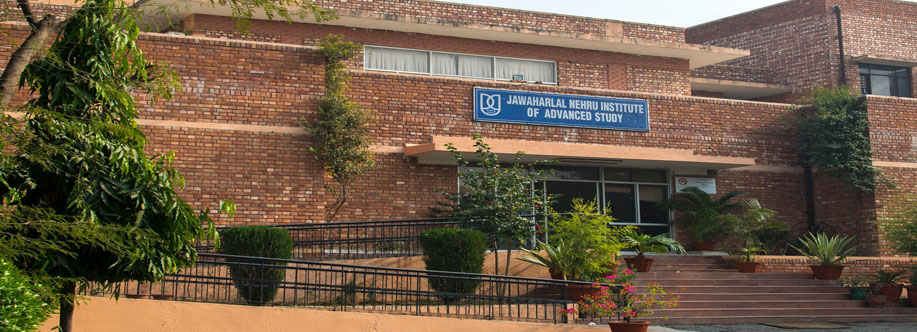Jawaharlal Nehru University (JNU) has been in the news for all the wrong reasons over the past few years. In 2016, the institution found itself in a fresh controversy when on 9 February, a cultural evening was organized by 10 students of the Democratic Students’ Union (DSU) at the Sabarmati Dhaba, against the execution of Afzal Guru and separatist leader Maqbool Bhat. On 9th February 2013, Afzal Guru was executed by the government for his role in the 2001 Parliament attack. Since then, protests were being organized every year on the same date. “Anti-India” slogans like “Kashmir ki azadi tak jung chalegi, Bharat ki barbadi tak jung chalegi” (War will continue till Kashmir’s freedom, war will continue till India’s demolition) were raised at the protest meet. The institution is known to be the last bastion of communism because JNU Students Union (JNUSU) elections are mostly won by student wings of communist parties. The institute is also home to urban Naxals and Left-wing extremism sympathising students and professors.
The new JNU administration is introducing an engineering course to bring more professionals and ‘serious students’ into the University. The university is known for its tilt towards humanities and social sciences courses, and apathy towards industry and job oriented professional courses. The admission for the new engineering course has been started and classes will begin in July of this year. Professor Ramesh Kumar Agrawal, the Dean of the school of engineering said “JNU was always ready for this course. Unlike many engineering colleges that have only a handful of permanent faculty members, JNU has a huge pool of specialized teachers on its campus already, among others, most of the engineering faculty is from Special Centre for Nanoscience and School of Computer and Systems Sciences.”
Totally 50 students will be admitted this year for a five-year dual degree program, and admission would be based on ranking in JEE (Mains). The new school is supposed to be a brainchild of the University’s Vice-Chancellor M Jagdeesh Kumar who himself was a Professor of Electrical Engineering at IIT Delhi.
As with any other positive development in the nation today, the decision received criticism from JNUSU and JNU teachers Association. The president of JNUSU Geeta Kumari said “JNU should focus on strengthening post-graduate and advanced courses, and not waste resources on undergraduate courses, it’s an attempt to change the character of JNU.” On the other hand, a senior faculty member affiliated to JNUTA said “Creating people with critical thinking has been the mandate of JNU. This will be at stake when it diversifies by starting industry-oriented and job-oriented technology courses.” The statements show the apathy of leftist students and teachers towards jobs and industry. While the finances of the University are managed by taxpayer’s money, these students do not want to pay back to the nation by doing working and paying taxes. Students like Kanhaiya Kumar, Umar Khalid who spent more than 10 years in JNU on public money, get involved in anti-national activities rather than doing anything productive.
The University is considered the “den of liberalism“, as most of the courses taught are on the left side of the political spectrum. Students in the University involve themselves in many illegal activities as there are no restrictions from the administration. The majority of faculties in the University have a clear-cut leftist bias and they encourage students to carry forward the leftist ideology. Many professors are the official members of Communist parties and are involved in party activities for most of the time rather than teaching students impartially. It is interesting that despite coming into existence since 1969, JNU does not have any professional courses like engineering and management, the reason behind this being the apathy of communists towards professionalism and the corporate culture. With the change in the administration, professional courses are being introduced and the University is likely to have a management course by the next academic session. The registrar Pramod Kumar said “The UGC has agreed to fund both schools of engineering and management. The details are yet to be worked out”.
The problem with Indian universities is they lack diversity in their courses due to which their ranking goes down in the top global universities list. The top American universities like MIT, Stanford, Harvard offer courses ranging from Medical to International Law which helps them in attracting students from across the world. The engineering and management courses in JNU will bring diversity in courses the University offers as well as in the type of students that enroll in the University. A course like engineering will attract career oriented bright students who are constructive and want to make a difference in society.
Another important development that will take place after the introduction of engineering and management courses is the change in the dynamics of student’s politics. Until now, the courses and admission process were intentionally tilted towards the Left by communist faculty and administrators of the University. The only time a center-right student organization managed to win the post of JNUSU president was 2001 when ABVP candidate Sandeep Mahapatra defeated his left backed counterpart. The domination of leftist student organizations is also due to active support they get from faculty members. Over the past few years with the rise of center-right ABVP, the Left started placing a coalition candidate to win the election.The introduction of career oriented courses like management and engineering will help in balancing the student politics of the University.
